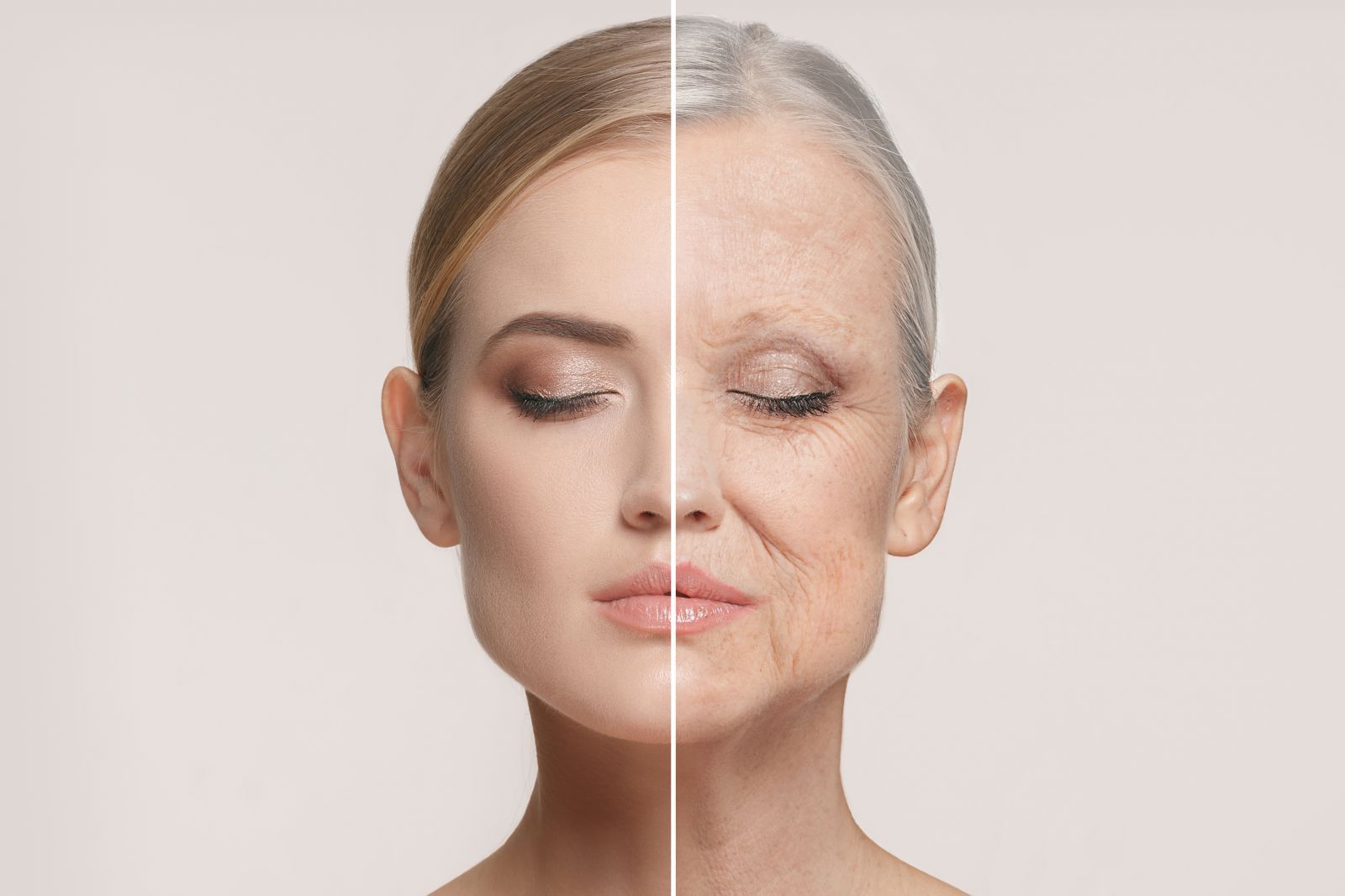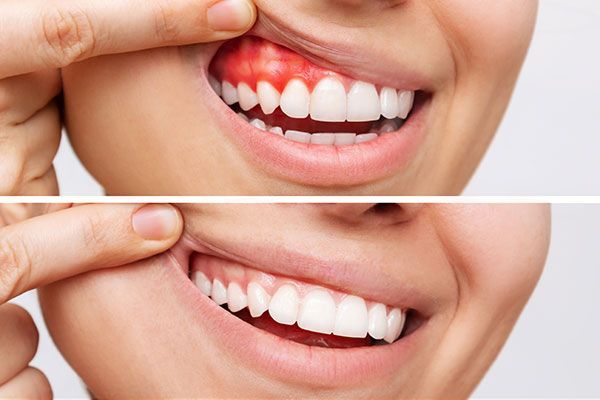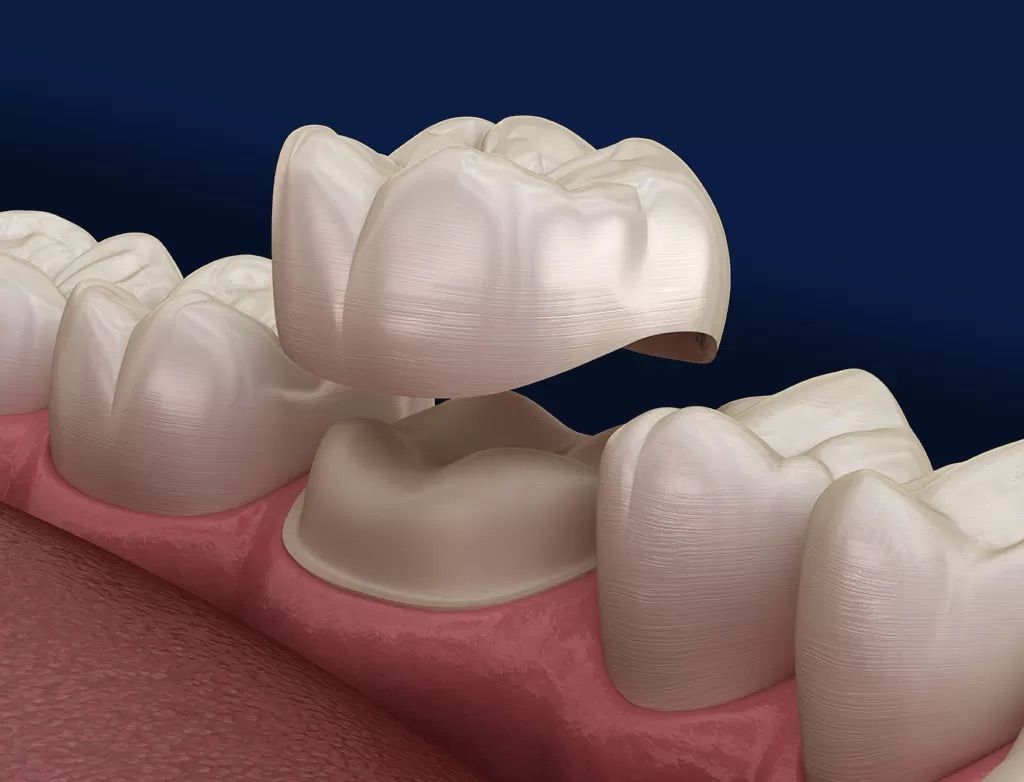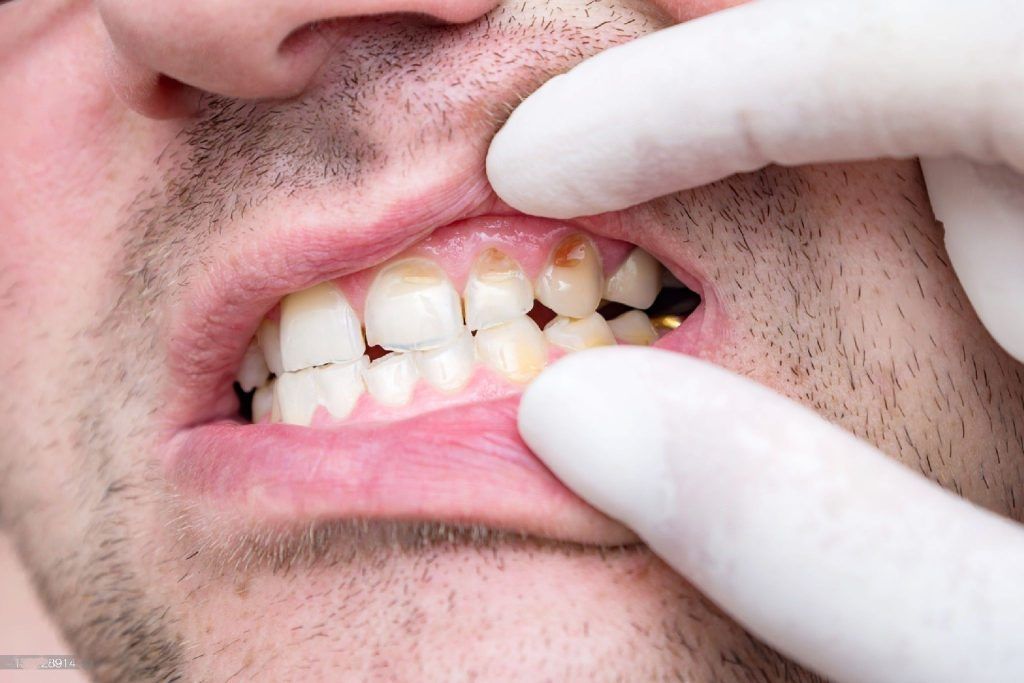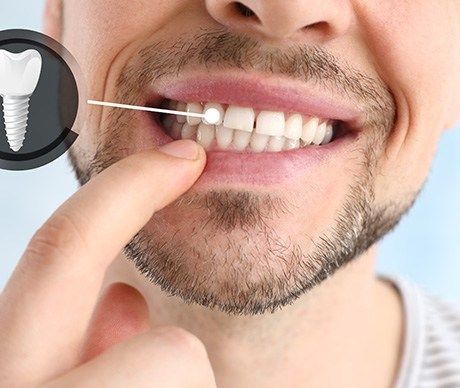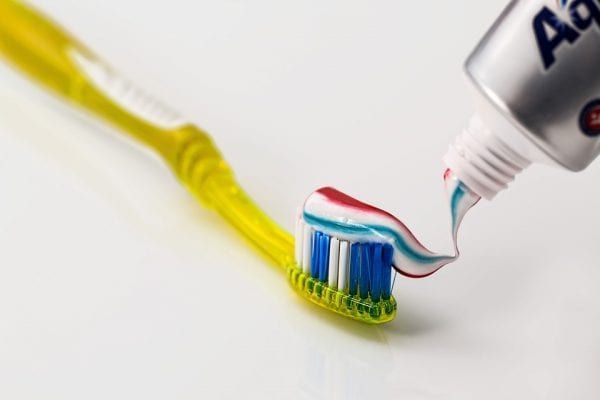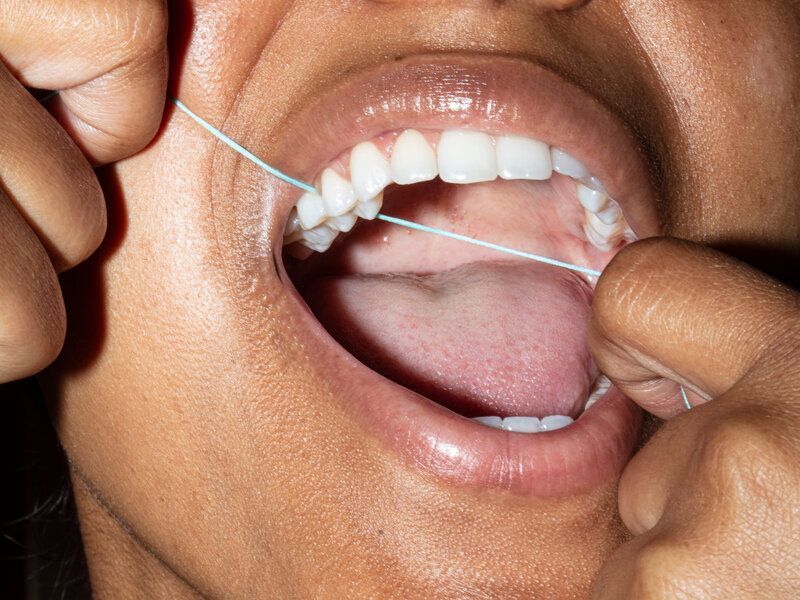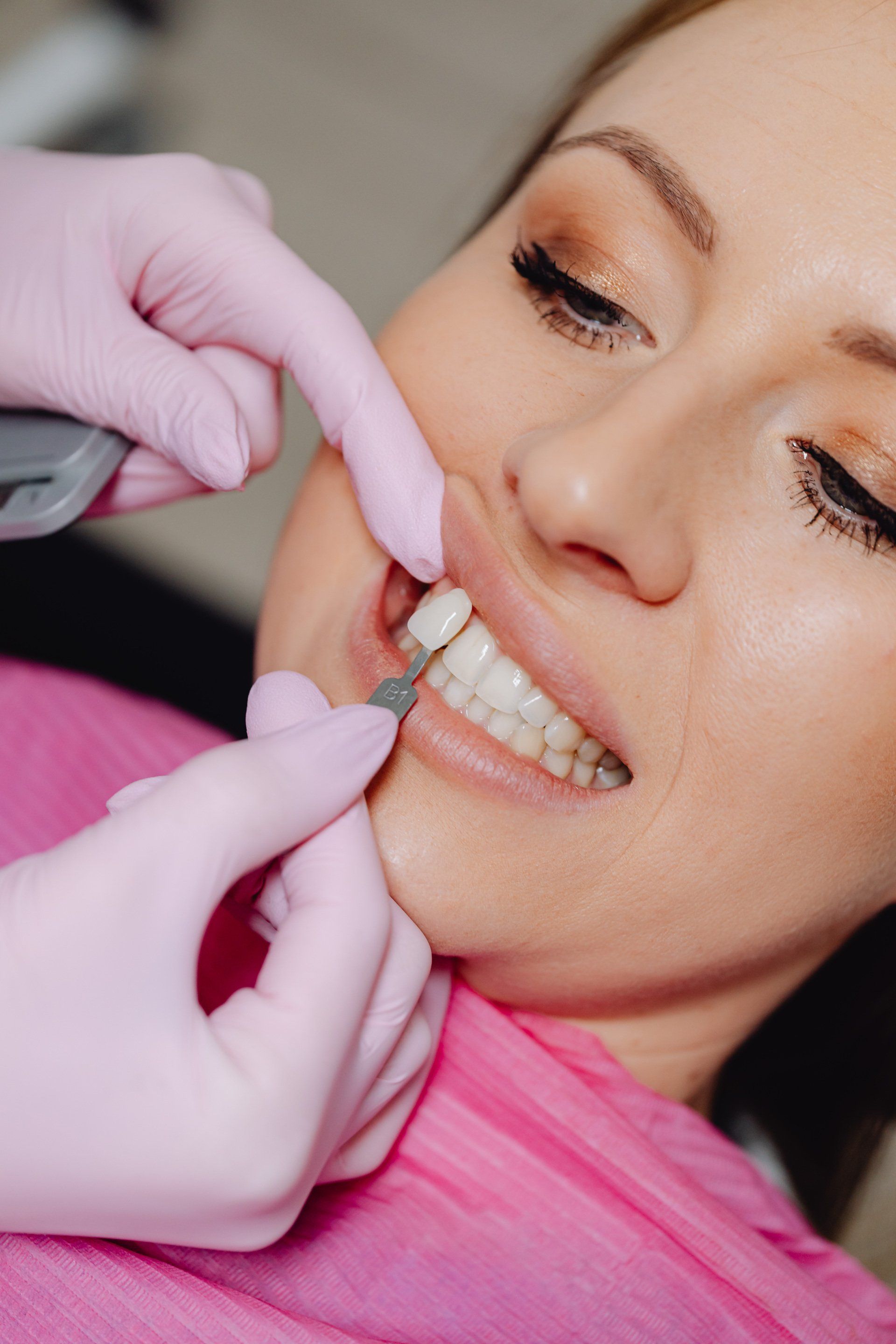You may have had dental problems for a while that made dentures necessary, or you may have lost teeth suddenly due to accident or injury. If that's the case, dentures are a necessity, and you are grateful you were able to get fitted. However, if you are one of the millions of Americans that suffer from TMD, you may discover that your new dentures have affected your jaw joint. Not sure what we mean? Let us give you some information about TMD and dentures.
What Is TMJ? What Is TMD?
Your mouth has two amazing joints, one on each side of your mouth. It is called your temporomandibular joint (TMJ). This joint connects your upper and lower jaws. The joint works like a sliding hinge, and there is a pad of fibers and tissue between the two edges of your hinge that allows your jaw to open and close properly. When that pad of tissue gets inflamed, it can cause a lot of problems. You might feel pain when you open or close your mouth. You might find it difficult to chew. You might even have problems opening or closing your jaw. This condition is called temporomandibular joint disorder, or TMD.
Dentures And TMD
Dentures are made of plastic, acrylic, porcelain and composite. Dentures are made to fit snugly against your gums, which allows you to eat and speak properly. Dentures are made for each individual to fit their mouths perfectly. However, there are times we can't get dentures to fit properly at the time you are fitted. Usually, this happens when your gums are swollen at the time you are fitted with dentures. For example, you may have had a few teeth removed before you were fitted for dentures. Your gums may be swollen because of your tooth extraction. Your gums might also be traumatized if you lost teeth because of an accident or injury, which would also cause your gums to swell.
If you are having problems opening and closing your mouth, or you feel a popping or cracking when you try and chew, you need to give us a call. We can help!

